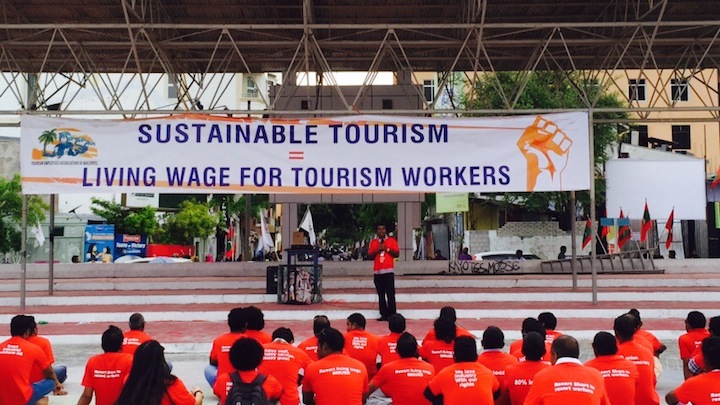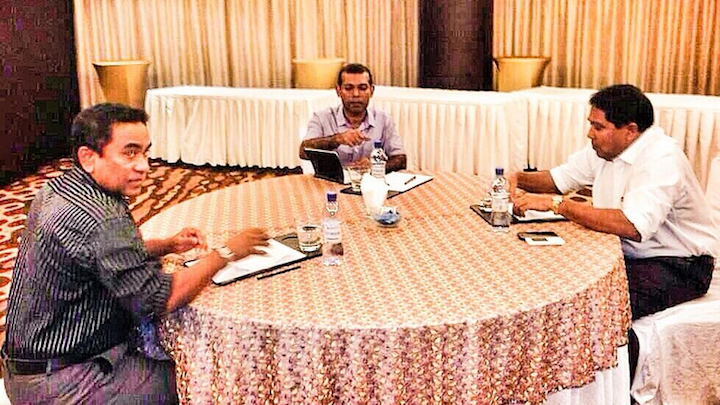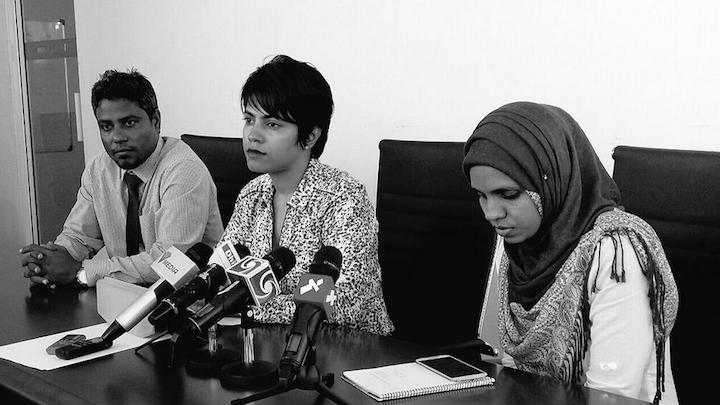Home minister Umar Naseer has claimed that more than 100,000 students and teachers participated in a parade held yesterday to celebrate the upcoming golden jubilee of independence.
Naseer’s claim was met with skepticism on social media as the number of students in government, community and private schools in the Maldives is 86,799, according to official figures.
Thousands of students, teachers and parents across the country joined the parade on Saturday in what the home ministry said was the “biggest event” held so far with the participation of students.
Students from the atolls marched on the main street of their island while the parade took place on Majeedhee Magu and Ameenee Magu in Malé.
“We can say with a lot of certainty that over 100,000 students participated in the event,” said home ministry’s media coordinator Thazmeel Abdul Samad.
Over 100,000 students & teachers across the country participated in today’s Minivan50 School event. Thank you all.
— Umar Naseer (@UmarNaseerPPM) May 30, 2015
Social media users have questioned the accuracy of the figure, with one user calling the claim a “joke.”
— ibu jaleel 4MN #KKBK (@ibujalyl) May 30, 2015
The parade in the capital started from the Maafannu stadium, went through the city’s main thoroughfare, and ended back at the stadium.
Home minister Naseer, foreign minister Dunya Maumoon, education minister Dr Aishath Shiham, and other high-ranking officials took part in the parade, wearing national colours.
The parade concluded with a skydiving event at the Maafanu stadium with the four foreign skydivers signing autographs and taking photos with participants.
The skydivers are due to conduct a training exercise for 15 locals for a skydiving event planned as part of the celebrations for the 50th anniversary of independence on July 26.
Other events planned by the home ministry to mark the golden jubilee include a swimming competition, a sea sports festival, a world record attempt, float parades, an international football tournament, a police tournament, several music shows and the unveiling of the new currency design.
The government has also started decorating the streets of Malé with national flags and sacrificed 150 goats in a public ceremony in April.
The Independence Day celebrations have drawn criticism over the lack of transparency of expenses made out of the state budget. However, the ‘Independence 50’ office under the home ministry has said that most of the work is done by volunteers.
50th Independence Day Activities -Male’ pic.twitter.com/QjQN4iW6YM
— MinistryofEducation (@EducationMv) May 31, 2015
50th Independence Day Activities by Schools-H.dh Atoll pic.twitter.com/UTnkDLpwf7
— MinistryofEducation (@EducationMv) May 31, 2015
50th Independence Day Activities by Schools-Addu.Atoll pic.twitter.com/KDLfa7oOgo
— MinistryofEducation (@EducationMv) May 31, 2015





